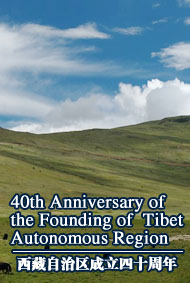|
Lingzhi
( 2005-10-27 )
Ganoderma (Ganoderma lucidum), or lingzhi in Chinese, is one of most precious herbal drugs catalogued in Chinese pharmacopoeia for its function of building up human resistance to diseases.
Lingzhi is one of the treasures of traditional Chinese medicine. It contains various amino acids, microelements as well as over 100 chemical components such as lingzhi amylase, three-terpene compounds, nucleotide, biological alkali and enzymes.
In ancient times, lingzhi was classified as "superior herb" or "God's herb," since it could "grant people eternal youth and longevity." Modern medical experiments have proved that lingzhi is capable of improving immunity, memory, regulating blood pressure, protecting liver, relieving cough and delaying aging.
Specifically, lingzhi can improve:
cholesterosis, coronary function;
hyper and hypotensions;
nervous tension, neurosis;
chronic bronchitis, hepatitis;
the leukocytopenia and reticuloendothelial systems;
It is also effective treating numerous other ailments.
The three major killers these days are: cancer, coronary disease, and cerebrosis. The latter two have their etiology closely linked to the circulatory system. Related problems like stroke, heart blockages, and arteriosclerosis, are all tied to problems in circulation. And lingzhi can correct this imbalance and strengthen systems to prevent further deterioration.
What is noteworthy are its preventative capabilities. In conclusion, lingzhi has been proven to exert significant effects on diminishing pain, fortifying the body's immune system and prolonging life. Its role in cancer control has not been proven, however.
|

